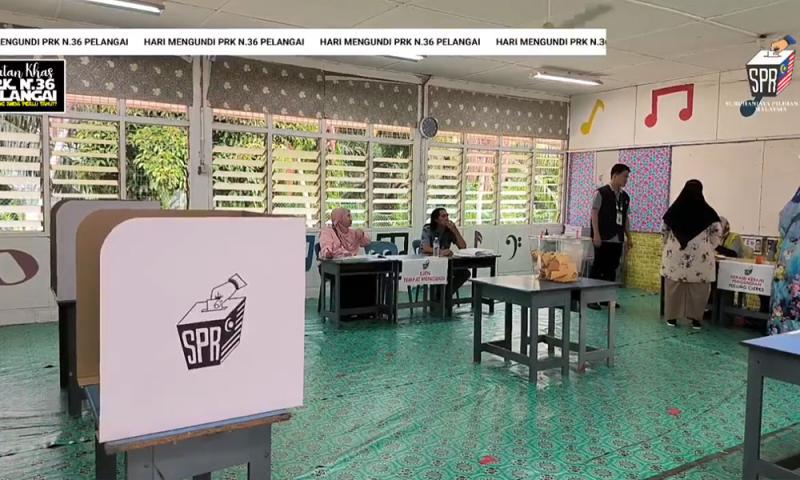LETTER | Local government elections - the forgotten reform
LETTER | There were so many strident calls for local government elections over the decades by the DAP and PKR. However, now that they are in government, there is hardly a whimper about this issue.
Almost all governments worldwide have local polls as a means of empowering the lowest tier of government. In Malaysia, regrettably, re-introducing local elections has become polemical and controversial as there is fear that it could introduce new features and elements which the government has no experience in handling.
During the short Pakatan Harapan rule from 2018-2020 the need for re-introducing local polls was mooted and the then local government and housing minister, Zuraida Kamarudin, was very vocal and keen on taking steps to revive the elections.
However, the proposal was shot down by then prime minister Dr Mahathir Mohamad, who stated that it could upset the present balance of power in the country.
What he alluded to was that Malay dominance in the local authorities could be diluted. This is an unjustified worry and excuse. Mahathir does not know much about local elections or even experienced it.
Old as he is, the last local government elections were held in 1965. Mahathir only became active in politics from 1969 onwards.
Despite recommendations by the Athi Nahappan Report in 1968, the government did not act on it. Possibly, the May 13, 1969 riots had left a deep division and worry within the government that reviving local polls could stir up communal trouble, especially in the urban areas - many of which were dominated by opposition parties.
Local elections, the government thought, could help revive and bolster support for the opposition, which was very much decimated during the 1980 and 90s.
BN was not willing to risk holding local polls and emboldening the opposition. BN instead formed the JKKK to look into local issues through its appointed councillors from its component parties.
This practice continues until now, with an additional layer of the federal government BN JKKK after some state governments were won by Pakatan Rakyat in 2008.
This system of appointed councillors cannot be an alternative to elections. The people as ratepayers should elect the councillors for better and democratic representation.
Even authoritarian governments allow for local government elections as they do not want local issues to snowball to threatening levels. In fact, in some countries, local governments are administered better than state or central governments!
Some members of the current government had once crowed their heads off demanding local elections when they were in the opposition in the past.
On their part, former attorney-general Tommy Thomas was hired by the DAP-led Penang government to look into the possibility of holding local elections. It was found that it could not be done unless sanctioned by the federal government.
This was put to the test again when Harapan formed the federal government in 2018 but it was blocked by Mahathir.
Now, the federal coalition government is in control and seems to have the mandate to continue its term for the remaining four years. It should initiate the groundwork for local polls immediately.
The government should not give the excuse that additional expenses will be incurred and that during the present difficult times, this is not a priority.
In my opinion, at least a billion ringgit can be saved annually from the extravagant and wasteful expenditures incurred by local authorities nationwide as there are not enough checks and balances or responsible people to monitor the expenses.
If Harapan does not start re-implementing local elections then no other party or coalition will do it.
For a start, it can be implemented in Selangor, KL and Penang. For the residents of Kuala Lumpur election will be a boon as they can have a two-tier system with MPs and elected councillors, as compared to other states that have a three-tier (MP, state assemblyperson, and councillor) system.
Local elections will also surely reinvigorate and revitalise the laggard local councillor system. Currently, local councillors are appointed by the parties for their loyalty and nothing else, and they do not show any allegiance to the community and its needs.
There is a vast difference between selected and elected councillors. Selangor, despite its developed state status, is the worst in local administration governance. The state is full of municipal problems and shortcomings and this can be fully attributed to a weak, unrepresentative, and undemocratic local governance.
The present appointed local councillors, who are mostly yes men, cannot do much against an indifferent municipal administration, unlike the elected ones who are voted in and empowered by the residents and ratepayers and can force changes for the better.
Presently, local authorities are marked by wastage, extravagance, and corruption, and the money collected from ratepayers and allocations by the state and federal governments are not utilised efficiently.
The time has come for Malaysia to implement the Athi Nahappan Report, which strongly advocated local democracy and provided the guidelines for an effective and efficient local government that will be a boon to the people.
It is time also for this long-delayed and forgotten reform to see the light of day for the betterment of the country. Local Government Development Minister Nga Khor Ming has to take the lead in initiating the reform to become a reality and leave a long-lasting legacy that will be remembered by the nation.
The views expressed here are those of the author/contributor and do not necessarily represent the views of Malaysiakini.
RM12.50 / month
- Unlimited access to award-winning journalism
- Comment and share your opinions on all our articles
- Gift interesting stories to your friends
- Tax deductable
